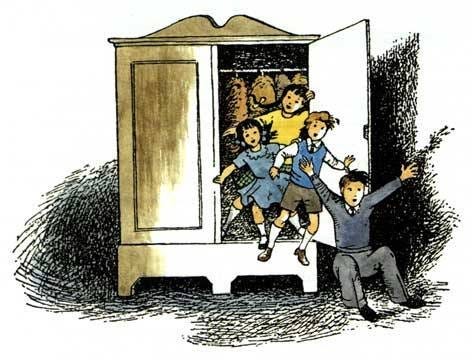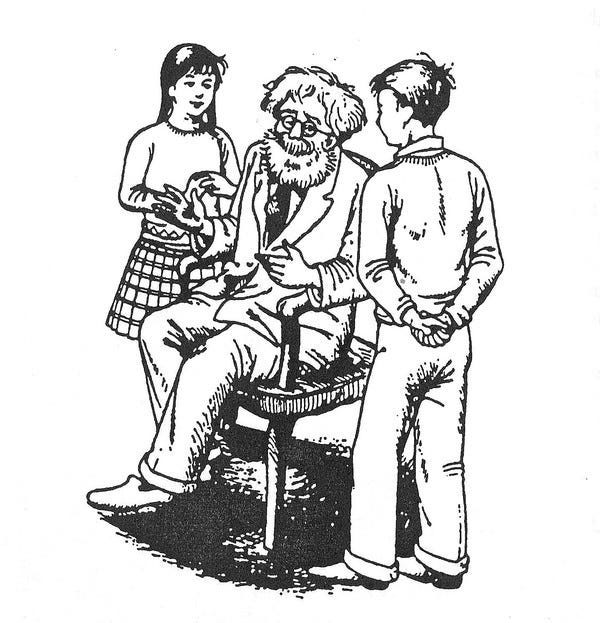Who’s Lying? What’s Between Our Legs or Trans Folks Lived Truth?
A Dialogue with Debbie Hayton
A Dialogue with Debbie Hayton
This is a follow-up to my original response to Debbie Hayton, who graciously reached out to me in dialogue on this matter, as both of us are trans women who passionately defend the rights of trans persons. In reply to my response, she posted the following on her Twitter page:
“Bethany’s piece was a response to this piece of mine in The Economist where I declared that I am not female and I know that I cannot become female. I always welcome criticism of my work, and I thank Bethany for a lengthy analysis. Clearly we have different ideas about what it means to be female, and I repudiate the main conclusion that I am blind to science. But the two pieces together clarify the difference between two world views. Do we divide society by sex (the evidence between our legs) or gender identity (the feeling in our heads). We cannot do both.”
My “main conclusion” is not that Debbie Hayton is “blind to science” but that her own deeply felt notion that she is not female and cannot become female …
… Proves itself “subjective” and “based on feelings” versus current medical, psychological, and sociological understandings of gender (in the West, mind you; countless aboriginal/native cultures and non-Western societies have never limited identification of gender to a binary defined by sexual reproductive organs); and
… Flies in the face of the objective experience of transgender persons across cultures and times, which persons accurately and objectively understand that their self-identification is at odds with “what’s between their legs”.
Hayton is entirely free to feel such about herself. However, that freedom is not based on an objective understanding of gender itself but on her personal preference. If this is “two world views,” then it’s Hayton’s isolated view of the world versus a human testimony across the ages.
Simply put, Hayton (and others of her mindset, including transphobes, religious zealots, and TERFs) impose upon the world a binary that IRRATIONALLY EXCLUDES as a possibility the lived experience of individuals and civilizations across centuries of human existence.
Feelings Ain’t Real! (Really?)
Hayton reduces all gender identification (except “what’s between our legs”) to a “feeling in our heads” as if that “feeling in our heads” is, by virtue of merely “being in our heads,” inadmissible. However, not only does contemporary neurological brain-scan and psychological evidence show that this so-called “feeling in our heads” is more accurate than the Western gender-binary, but also the lived experience of people and entire cultures demonstrates that what Hayton reduces to mere “feeling” has a correspondence with reality that her oversimplified and unworkable dichotomy misses.
Simply put, Hayton (and others of her mindset, including transphobes, religious zealots, and TERFs) impose upon the world a binary that IRRATIONALLY EXCLUDES as a possibility the lived experience of individuals and civilizations across centuries of human existence.
Possible vs. Impossible
Per Sherlock Holmes, we should look at Hayton’s claims in terms of “now that we have eliminated all the possible explanations, it’s time to entertain what we think impossible.”
Hayton simply can’t/won’t entertain that which she has already told herself is impossible.
And Hayton simply can’t/won’t entertain that which she has already told herself is impossible. She holds an old-fashioned, rationalist notion that what is felt/experienced is not fit as evidence. Quantum theory alone has disproven such a narrow epistemology, demonstrating that HOW we observe/ experience things impacts their reality. Just because it’s “felt” doesn’t mean it’s not real but rather demonstrates a reality that exists beyond mere replication in a laboratory experiment.
Three literary references come to mind here.
Dumbledore
In Harry Potter and the Deathly Hallows, Dumbledore’s last words to Harry are a seminal reminder to not limit ourselves to Hayton’s narrow confines:
“‘Of course it is happening inside your head, Harry, but why on earth should that mean that it is not real?’”
Puddleglum
In C.S. Lewis’ The Silver Chair, Puddleglum dissipates the spell of the Green Witch by noting,
“One word, Ma’am … Suppose we have only dreamed, or made up, all those things — trees and grass and sun and moon and stars and Aslan himself … Then all I can say is that, in that case, the made-up things seem a good deal more important than the real ones. Suppose this black pit of a kingdom of yours is the only world. Well, it strikes me as a pretty poor one. And that’s a funny thing, when you come to think of it. We’re just babies making up a game, if you’re right. But four babies playing a game can make a play-world which licks your real world hollow.”
Marley’s Ghost vs. Rationalist Scrooge
In Dickens’ A Christmas Carol, the ever-rationalist/materialist Scrooge discounts Marley’s ghost by saying,
“‘You may be an undigested bit of beef, a blot of mustard, a crumb of cheese, a fragment of underdone potato. There’s more of gravy than of grave about you, whatever you are!’
“‘Man of the worldly mind!’ replied the Ghost, ‘Do you believe in me or not?’
“‘I do,’ said Scrooge. ‘I must. But why do spirits walk the earth, and why do they come to me?’”
They come to us all the time, dear Scrooge. The danger is that we ignore them. Thus, someone like me lives 50 years sadly and wretchedly repressing, and ignorant of, her own truly female identity.
I spent a lifetime denying my experience, my lived truth, because the world had told me, via numerous brutalities, that the only way I could see myself was in terms of what the obstetrician spotted between my legs and a societal impetus to reinforce that gender binary past all reason, as well as beyond my own experience.
We’re just babies making up a game, if you’re right. But four babies playing a game can make a play-world which licks your real world hollow.
So, the crux of the debate between me and Debbie Hayton doesn’t come down to who has the better science or the better policy. It comes down to a simple logical crux that another literary reference lays before us.
Who Is the Liar? Lucy or Edmund?
In Lewis’ The Lion, the Witch, and the Wardrobe, Lucy and her brother, Edmund, both have gone through the Wardrobe into Narnia (Lucy twice, Edmund once, at the same time Lucy goes for her second visit). When they return to our world, Lucy joyfully tells their older siblings, Peter and Susan, that Narnia is indeed real, that she was not just the victim of her own delusion, for Edmund, too, has been there.
Spited by Lucy’s being proven truthful and his previous teasing of her now being shown as unjust, Edmund lies, saying that the two of them had a jolly good time “pretending.”
Fearing that Lucy’s feelings are getting the best of her, Peter and Susan seek out the master of the house, Professor Kirke, who, astonishingly, vouches for Lucy’s seemingly subjective experience of Narnia, noting that, whereas Lucy is regularly known as a truth teller, Edmund is not. Further, Kirke demonstrates that Lucy’s accompanying behaviors prove she’s an accurate and verifiable witness of reality, even going so far as to claim that Peter and Susan’s ideas of what is possible and impossible (see the Sherlock admonition above) are limited and missing something in their out-of-hand rejection that Narnia could exist.
“‘Logic!’ said the Professor half to himself. ‘Why don’t they teach logic at these schools? There are only three possibilities. Either your sister is telling lies, or she is mad, or she is telling the truth. You know she doesn’t tell lies and it is obvious that she is not mad. For the moment then, and unless any further evidence turns up, we must assume that she is telling the truth.’”
You Decide
You make the choice, Dear Reader:
Are trans persons who know they’ve always been the gender they identify with, they live with, they have experienced in their very bodies, minds, hearts, and souls—and whose experience is additionally borne out by contemporary medical and psychological data, as well as the witness of ages across cultures—just mad subjectivists not fit to inform policies directly impinging on their life, welfare, and liberty as persons of human dignity?
OR
Is gonadal/chromosomal presentation that flies in the face of centuries of lived experience the only available way to categorize persons via public policy?
Like Lucy, we’re telling the truth.
I am all for Debbie Hayton applying the latter strictly to her own situation, especially if it graces her with a happy and fulfilled existence. However, we cannot allow her narrow and subjective perspective to become a template by which society enforces an irrational binary in the face of our own lived experience, cultural history, and the science that steadfastly bear out that, like Lucy, we’re telling the truth.
Farther up and further in, to the real Narnia we go!
If you enjoyed this piece, hold down the*clap* or *applaud* button (you can clap up to 50 times, you know). 👏👏👏
Please use the Facebook and Twitter *share* links, and help me spread the love. 💗
I’m a published novelist and painter. Follow me on Social Media so I can reach more people:
👉Check out my Novels & Paintings!
👉Get my books on Amazon (Kindle, print, or AudioBook) & Apple Books
👉Like the Beautiful Buddha Page on Facebook
👉Follow Bethany on Twitter
As always, your respectful comments are appreciated. 🤗









